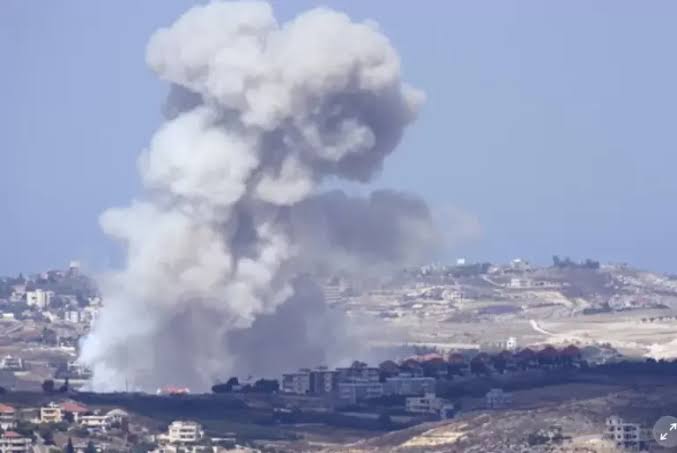
Hezbollah claimed responsibility for launching a ballistic missile targeting the Mossad headquarters near Tel Aviv early Wednesday morning. The missile, identified as a Qader-1, was intercepted by Israel’s air defense systems before reaching its target, according to Israeli military sources.
Hezbollah stated that the missile launch was in retaliation for Israel’s ongoing attacks on Gaza and Lebanon. The group accused the Mossad of orchestrating the assassination of senior Hezbollah leaders and carrying out recent attacks through the use of pagers and wireless devices.
However, Israeli military spokesperson Nadav Shoshani refuted Hezbollah’s claim, stating that the missile was aimed at civilian areas, and there is no Mossad facility in the targeted region. No casualties or significant damage were reported.
This attack coincides with Israel’s intensive air campaign in Lebanon, where over 1,600 airstrikes have been conducted since Monday. The Lebanese Ministry of Public Health confirmed that at least 558 people have been killed, with thousands displaced due to the violence.
Israel is preparing for a potential ground operation in Lebanon. Israeli Chief of Staff Lt. Gen. Herzi Halevi informed troops on the northern border that recent airstrikes were setting the stage for a possible invasion, signaling an escalationin the conflict.
“You hear the jets overhead; we have been striking all day. This is both to prepare the ground for your possible entry and to continue degrading Hezbollah,” Lt Gen Herzi Halevi said
Satellite imagery captured over the past few days by Vantor shows the aftermath of a…
Today marks the first total lunar eclipse for 2026, as seen from Pakistan and around…
In June 2024, Justin Timberlake found himself in a tricky legal predicament after his arrest…
The Senate session is scheduled for today at 11:30 am in Islamabad’s Parliament House. A…
Sean Combs is set for an early release from prison following a significant sentence reduction.…
ISLAMABAD - Deputy Prime Minister and Foreign Minister Senator Mohammad Ishaq Dar spoke with European…
This website uses cookies.